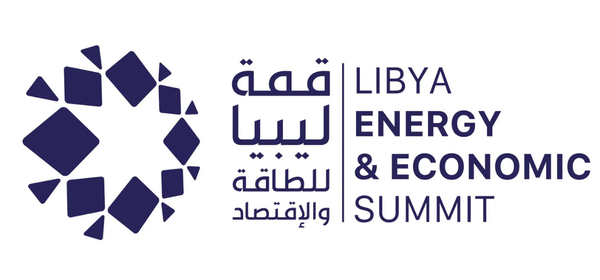ليبيا تستفيد من الشراكة التركية لدعم هدف 4 جيجاواط من الطاقة المتجددة
)
تشهد ليبيا تحولاً جذرياً في استراتيجيتها في مجال الطاقة، حيث تتحرك لتلبية الطلب المحلي المتزايد وتقليل الاعتماد على النفط والغاز. وتؤهل سلسلة من الشراكات الاستراتيجية - لا سيما مع الشركات التركية - البلاد لتصبح رائدة إقليمية في مجال الطاقة الشمسية وطاقة الرياح.
أهداف الطاقة المتجددة والمشروعات قيد التنفيذ
وقد التزمت ليبيا بتوليد 4 جيجاوات من الطاقة المتجددة بحلول عام 2035، أي ما يعادل 20% من مزيج الطاقة لديها. ويقع مشروع السدادة للطاقة الشمسية بقدرة 500 ميجاوات في قلب هذا الهدف، والذي يدخل مرحلة التطوير النهائية. بقيادة شركة توتال للطاقة بالتعاون مع الشركة العامة للكهرباء في ليبيا وهيئة الطاقة المتجددة في ليبيا، ومن المتوقع أن تبدأ أعمال البناء في عام 2025.
في حين لا تزال ليبيا واحدة من أكبر منتجي النفط في إفريقيا، تعمل الحكومة على تسريع جهودها لتنويع محفظة الطاقة لديها. ووفقاً لوكالة الطاقة الدولية، لم تمثل مصادر الطاقة المتجددة سوى 0.01% من استهلاكها النهائي للطاقة في عام 2021. ويهدف المسؤولون الآن إلى عكس هذا الاتجاه من خلال الاستفادة من وفرة الإشعاع الشمسي وإمكانات الرياح غير المستغلة مع معالجة النقص في الطاقة.
الدور الاستراتيجي للخبرة التركية
في الوقت الذي تبني فيه ليبيا قدراتها في مجال الطاقة المتجددة، برزت تركيا كشريك استراتيجي رئيسي، حيث تقدم الاستثمار والخبرة الفنية. ووفقاً لأسامة الدرة، مستشار رئيس الوزراء لشؤون الكهرباء والطاقة المتجددة، فإن ليبيا بصدد وضع اللمسات الأخيرة على مذكرة تفاهم مع الشركات التركية لإضفاء الطابع الرسمي على التعاون في مجال تقنيات الطاقة المتجددة. وقد شملت المناقشات نقل المعرفة والتطوير المشترك للبنية التحتية، بما في ذلك التوربينات التي تعمل بالغاز والألواح الشمسية وتوربينات الرياح.
وقد خصصت ليبيا بالفعل منطقة استثمارية في مجال الطاقة المتجددة في شرق طرابلس، حيث من المتوقع أن تلعب الشركات التركية دوراً رئيسياً فيها. ويشمل الحضور القوي للبلاد المشاركة في مشاريع جارية مثل محطة جنوب طرابلس بالإضافة إلى مشروع الطاقة الطارئة في غرب طرابلس الذي تقوده شركة أنكا تكنيك التركية بقدرة 670 ميجاوات ومحطة أوباري التي تعمل بالغاز بقدرة 640 ميجاوات.
التجارة الإقليمية والسيادة الاقتصادية
وبالتوازي مع التوسع المحلي، تستكشف ليبيا فرص تجارة الطاقة الإقليمية. وتتوخى المناقشات الجارية مع اليونان ومالطا وتركيا مشاريع الكابلات البحرية التي يمكن أن تمكن ليبيا من تصدير فائض الطاقة المتجددة إلى أوروبا. كما تؤكد المشاركة في منصة مشغلي أنظمة النقل في البحر الأبيض المتوسط على طموح ليبيا في الاندماج مع شبكات الطاقة الإقليمية، حيث تلعب تركيا دورًا وسيطًا حاسمًا.
وعلى هذا النحو، فإن وجود إمدادات مستقرة ومتنوعة من الطاقة في ليبيا يتيح الفرصة لتعزيز الإنتاجية الصناعية وخفض تكاليف الكهرباء وتقليل الاعتماد على دعم الوقود الأحفوري. ومن خلال التحالف مع الشركات التركية، تستفيد ليبيا أيضاً من برامج بناء القدرات وتدريب المهندسين والفنيين المحليين على أنظمة الطاقة المتجددة وإدارة الشبكات. هذه الجهود لا تعزز سيادة ليبيا في مجال الطاقة فحسب، بل تضع البلاد في مكانة مركز للطاقة النظيفة في جنوب البحر الأبيض المتوسط.
من المتوقع أن تحتل مساعي ليبيا نحو الطاقة المتجددة مركز الصدارة في قمة ليبيا للطاقة والاقتصاد 2026، المقرر عقدها في الفترة من 24 إلى 26 يناير في طرابلس. سيجمع هذا الحدث أصحاب المصلحة الرئيسيين لتقييم أهداف الطاقة النظيفة في البلاد ومشاريع الطاقة الشمسية الرائدة وخطط تجارة الطاقة الإقليمية.
انضم إلى قادة القطاع في قمة ليبيا للطاقة والاقتصاد 2026 في طرابلس واستكشف فرص الاستثمار في أحد أكثر أسواق الطاقة ديناميكية في شمال أفريقيا. تقدم قمة ليبيا للطاقة والاقتصاد 2026 منصة رائدة للشراكات والابتكار ونمو القطاع. تفضل بزيارة www.libyasummit.com لتأمين مشاركتك. للرعاية أو المشاركة كمندوب، يرجى الاتصال على sales@energycapitalpower.com.

